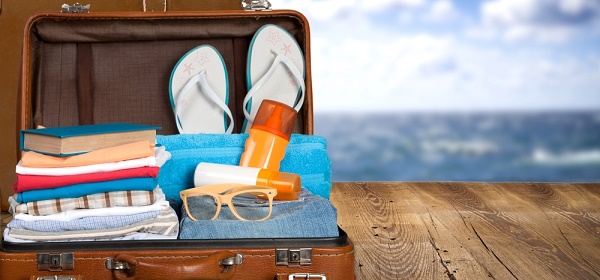Travelling overseas can be the experience of a lifetime, but it’s important to ensure that your destination is safe to visit and that you’re as prepared as you can be before you leave.
1. Check Smartraveller for Travel Advice
Smartraveller.gov.au is run by the Department of Foreign Affairs and Trade (DFAT). It provides official government advice about the safety of certain countries and destinations.
On Smartraveller, you can:
• Search or browse official travel recommendations by country. Advice for some countries is divided by region (e.g. see Turkey), so check which area your destination is located.
• Create a Smartraveller account and subscribe to travel advice updates for your intended countries.
• Read up on other safety information based on your destination, such as crime and security, local travel, health, laws, Visas required, etc.
2. Research Your Destination
In addition to utilising Smartraveller, you should also research your destination thoroughly.
• Search the news to find out more about what’s going on in your intended destination. Pay particular attention to incidents of crime, unrest and the like.
• Research other travel guidebooks or websites for info and safety tips on your country. For example, Lonely Planet includes a Survival Guide for most countries (however, keep in mind that anything on Smartraveller will trump what you read on other sites).
• Find out more about medical requirements and amenities. Will you need any vaccinations? What medications can you take into the country and will you need to carry a prescription/letter from your doctor?
Are medical services (doctors, pharmacies, hospitals) located near where you will be staying? Remember, the more prepared you are, the better.
![]()
3. Book a Safe Hotel
It’s important to book a hotel that’s in a safe area with adequate security, and ideally on a well-lit street with lots of foot and tourist traffic.
• Research your top choice of hotels and check reviews by other travellers (e.g. on TripAdvisor) before booking. Measures like doormen/security guards, key/card-controlled entrances and 24-hour reception can add extra safety.
• Check the map to see exactly where your hotel is located. Is it in the main tourist area? How will you get to/from your hotel and other things like attractions, restaurants?
• If you’re unsure, consult a travel agent and get them to book your accommodation for you. They’ll usually be able to recommend something that’s in a safe and convenient spot.
4 Tips Before You Leave:
1. Register your travel plans on Smartraveller.gov.au (you’ll need to create an account first if you don’t already have one). If you require urgent assistance overseas, it will make it easier for the government to find and help you.
2. Organise travel insurance as soon as possible. Ensure you’re covered for your specific destination and consider cover for things like, medical/hospital expenses, cancellation, luggage, delays, activities, and anything else involved in your trip.
3. Write down the details of the nearest Australian Consulate in your region, as well as other emergency phone numbers (e.g. 911, local police, travel insurance) and keep these on hand when travelling.
4. Leave a copy of your passport and itinerary (including hotel information) with someone you trust at home, like a family member or close friend.
InsureandGo offers comprehensive travel insurance cover for travellers of all ages and are offering 10 per cent off their travel insurance for YourLifeChoices subscribers. Simply click here or contact us on 1300 552 701 and quote the promo code: Choices10 and save! Keep in mind, you can buy travel insurance up to one year in advance prior to departure.
Mitsui Sumitomo Insurance Company, Limited, ABN 49 000 525 637, issues InsureandGo Travel Insurance (the insurance). Please read the combined product disclosure statement and financial services guide available at www.insureandgo.com.au/policy-wordings to decide if the insurance is right for you.

